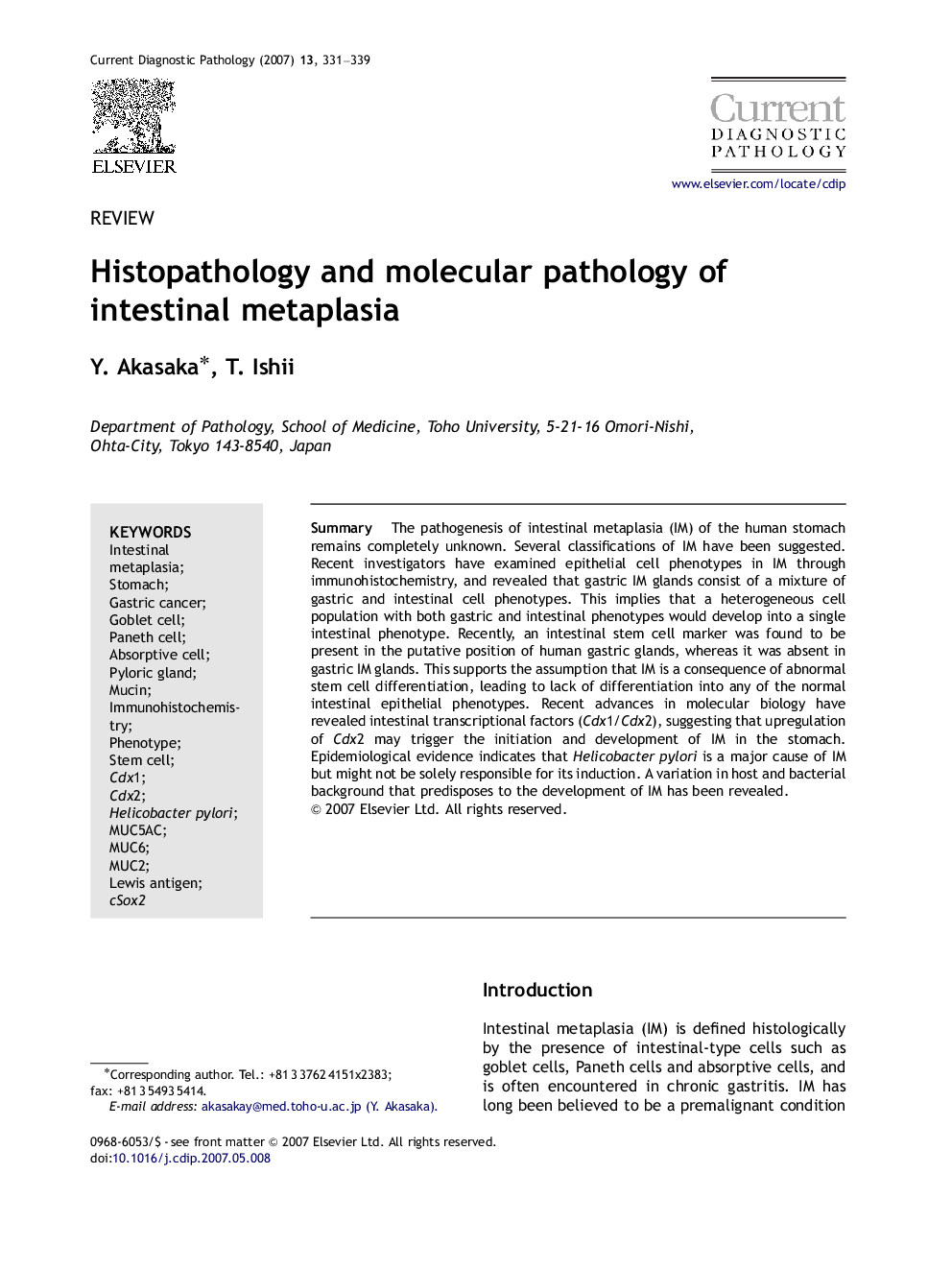| Article ID | Journal | Published Year | Pages | File Type |
|---|---|---|---|---|
| 4130821 | Current Diagnostic Pathology | 2007 | 9 Pages |
Abstract
The pathogenesis of intestinal metaplasia (IM) of the human stomach remains completely unknown. Several classifications of IM have been suggested. Recent investigators have examined epithelial cell phenotypes in IM through immunohistochemistry, and revealed that gastric IM glands consist of a mixture of gastric and intestinal cell phenotypes. This implies that a heterogeneous cell population with both gastric and intestinal phenotypes would develop into a single intestinal phenotype. Recently, an intestinal stem cell marker was found to be present in the putative position of human gastric glands, whereas it was absent in gastric IM glands. This supports the assumption that IM is a consequence of abnormal stem cell differentiation, leading to lack of differentiation into any of the normal intestinal epithelial phenotypes. Recent advances in molecular biology have revealed intestinal transcriptional factors (Cdx1/Cdx2), suggesting that upregulation of Cdx2 may trigger the initiation and development of IM in the stomach. Epidemiological evidence indicates that Helicobacter pylori is a major cause of IM but might not be solely responsible for its induction. A variation in host and bacterial background that predisposes to the development of IM has been revealed.
Keywords
Related Topics
Health Sciences
Medicine and Dentistry
Pathology and Medical Technology
Authors
Y. Akasaka, T. Ishii,
